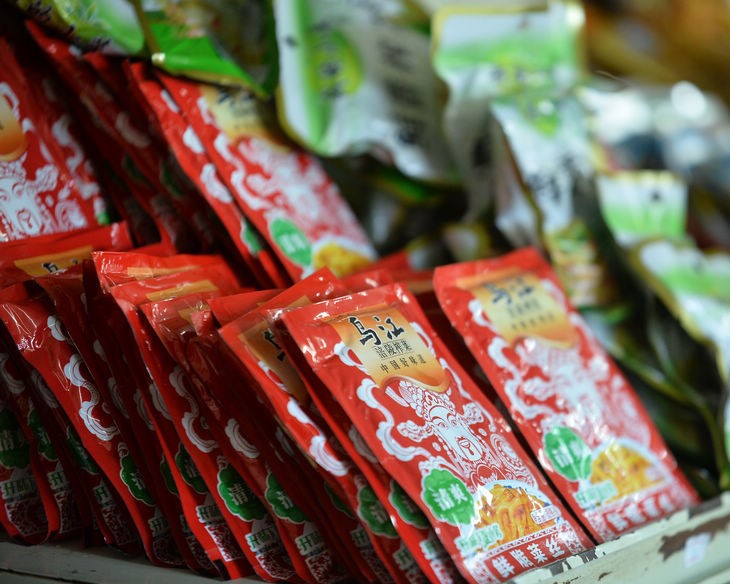
Products from China are now easy to find in Chinese communities in Addis Ababa, Ethiopia's capital. (Photo: Xinhua)
Addis Ababa (Xinhua) -- Huang Baodong, a Chinese expat in Ethiopia, had worried how he would adjust to a new lifestyle far from his native land when he first arrived in the East African country.
But, since he arrived in Ethiopia earlier this year, Huang, one of the estimated 50,000 Chinese people living in Ethiopia, has had little difficulty adjusting to life in the east African country, helped by the fact that he's found his favorite food ingredients in traditional markets in Addis Ababa.
Speaking to Xinhua, Huang, a regular customer at a traditional market place in the Bole district of Addis Ababa, said he buys food ingredients from Ethiopian shopkeepers in order to use it to make his own food.
"We come to this market to buy some food and materials we need, we can cook Chinese food by ourselves, so there is no problem," he said.
With Ethiopian New Year "Enkutatsh" just three days away from being celebrated, Huang is preparing to invite his Ethiopian friends to taste Chinese foods, while his Ethiopian friends have also invited him to their homes to taste a variety of Ethiopian foods.
The Ethiopian New Year, or Enkutatash in Amharic language, falls on September 11 (or September 12 during a leap year). The East African nation uses a unique calendar, which counts its year seven to eight years behind the Gregorian calendar. Presently, the country is preparing to celebrate the arrival of 2011 which this year will fall on Tuesday.
"Ethiopia people have made us very welcome here, they have invited us to spend the Ethiopian New Year with them, in their spare time they also invite us to weddings, and we feel very good," he said.
While Huang and fellow Chinese expats are delighted to find they have food ingredients in Ethiopia needed to cook their native cuisines helping ease their homesickness, for Genet Beyene, an Ethiopian shopkeeper in Bole district of Addis Ababa, the presence of Chinese customers has made her business more profitable.
"Our vegetable products are bought by both Ethiopians and Chinese, but most of the time our customers are Chinese," Beyene told Xinhua, emphasizing the importance of Chinese customers to her business.
However, Beyene's interaction with her Chinese customers hasn't been limited to commercial transaction, with her and other Ethiopian shopkeepers in the area now able to speak basic Chinese for daily communication.
"I speak basic Chinese to interact with my Chinese customers, but I also have witnessed many Chinese customers are now able to speak our native language Amharic while some others communicate in English," she said.
With the number of Chinese customers and their needs fast expanding, Beyene is already looking to diversify her vegetable products to expand her customer base.
"There are various vegetable types that I have seen with Chinese in Ethiopia, if I can get hold of these vegetables my business will become even more vibrant," she told Xinhua.
Another Ethiopian shopkeeper whose business has boomed with the influx of Chinese expats is Hewan Abebe, a meat seller.
"I sell chicken fingers, chicken legs, chicken wings as well as whole chickens, I also sell pork meat and various fish types," explained Abebe.
Abebe also said the increasing number of Chinese customers she's seeing for her meat business has given her the confidence to plan for the expansion of both the size and variety of meat products she currently sells.


